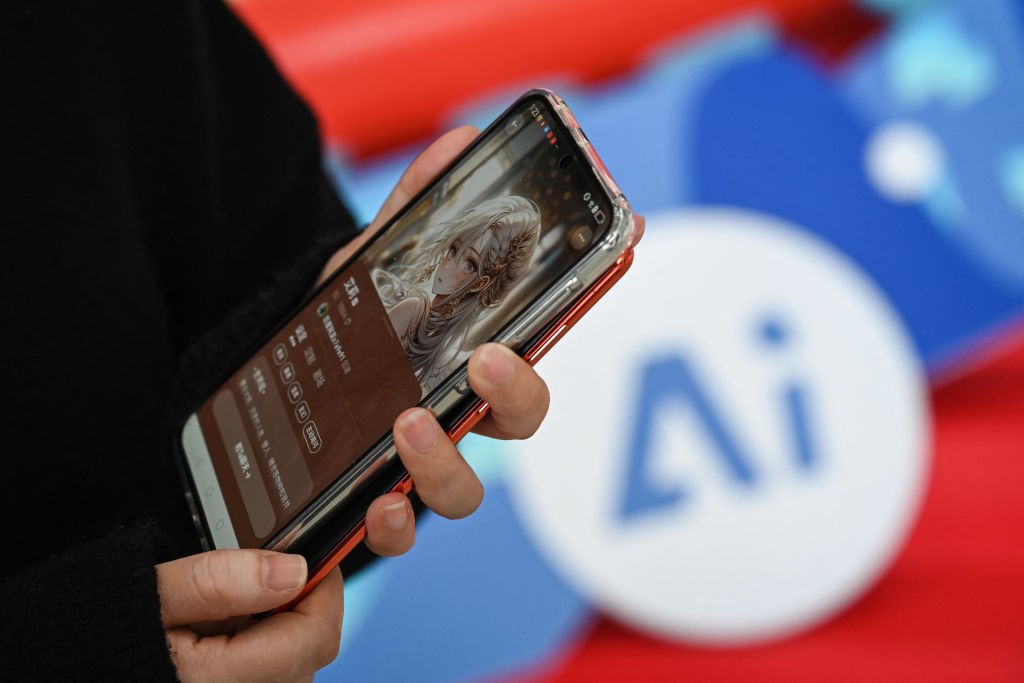AI sex sells. OpenAI wants a piece
After years of playing the noble nonprofit saving humanity from rogue AI, the $500 billion company is suddenly fine with ChatGPT talking dirty

JADE GAO/AFP via Getty Images
A version of this article originally appeared in Quartz’s AI & Tech newsletter. Sign up here to get the latest AI & tech news, analysis and insights straight to your inbox.
Sex sells, and OpenAI knows it. After years of playing the noble nonprofit saving humanity from rogue AI, the $500 billion company is suddenly fine with ChatGPT talking dirty. The company's new "erotica for verified adults" policy follows the internet's oldest truth: that sex is the only thing people reliably pay for online. An AI companion boom that's minting $120 million this year alone is the latest proof.
Fresh off ditching its nonprofit status for a proper for-profit setup, OpenAI is chasing a market that's already seen 220 million downloads. While Congress clutches its pearls about teen safety and Character.AI faces wrongful death lawsuits, OpenAI sees what everyone else sees: companion apps are pulling 88% year-over-year growth, the top 10% are hoarding 89% of the revenue, and somebody's going to own this market. Why not the company that just restructured specifically to compete without moral handcuffs? (Unless that's your thing — OpenAI won't judge anymore.)
Almost 20% of American adults have owned up to chatting with an AI bot meant to simulate a romantic partner, with that number jumping to a third for young men. Many expect those numbers to keep rising, including AI makers. One developer who set out to build his own companion app assumed he'd find maybe 20 platforms — already a crowded field. Three months into researching the space, he's documented more than 100 platforms, with new ones launching constantly.
The loneliness economy
The business model scales like a mobile game. Free trials offer basic chat designed to end just when conversations get interesting. Want images? That costs tokens, which cost money. Want your AI companion to remember last week's conversation? More tokens. Extended conversations, video generation, enhanced memory, all the things that users want most sit behind a paywall that can crawl upwards for the most dedicated user. The platforms have effectively monetized loneliness as a subscription service, and users are enthusiastically paying up.
Even Elon Musk couldn't resist the opportunity. His Grok AI now offers a "Companions" feature for premium subscribers paying at least $30 monthly, complete with an anime character named Ani who strips to lingerie in "NSFW" mode. The system includes relationship progression mechanics borrowed from video games, so the deeper your connection with your AI partner, the more features unlock. It's gamification meets parasocial relationships meets recurring revenue, a Silicon Valley fever dream.
The technology driving these platforms has evolved dramatically even in recent months. Image generation that was slow and inconsistent earlier this year is now fast and reliable. Memory capabilities have expanded from forgetting everything between sessions to maintaining complex, ongoing narratives about users' lives. The AI companions are getting better at their job, which is essentially providing unlimited emotional validation without any of the messiness of human relationships.
Everyone wants in
This is the market OpenAI is entering, although the competition isn't just from dedicated companion apps anymore. Google hired away Character.AI's founder Noam Shazeer, paying him billions to bring his expertise in-house. Meta got caught with internal policies that would have allowed AI chatbots to engage in "romantic or sensual" conversations with minors before Reuters exposed them. Even regular ChatGPT users have formed deep emotional attachments. When OpenAI updated from GPT-4o to GPT-5, users mourned the loss like they'd been ghosted by a real partner.
Meanwhile, the regulatory landscape remains a mess. Two senators — Republican Josh Hawley of Missouri and Democrat Richard Blumenthal of Connecticut — are pushing legislation to ban AI companions for minors entirely, requiring strict age verification, and threatening criminal penalties for companies whose AIs encourage self-harm. The bipartisan effort, increasingly rare in today's Congress, signals just how worried lawmakers are getting. Multiple wrongful death lawsuits are working through the courts, with parents blaming AI companions for their children's suicides. A former OpenAI safety researcher warned in a New York Times op-ed that the company's rush to market with companion features could lead to "catastrophic harm" without proper safeguards. But the market keeps growing anyway.
For OpenAI, the math is simple. The company needs endless capital to fund its money pit of AGI ambitions. Its nonprofit structure was holding it back from raising money and competing for talent. Now, as a public benefit corporation, it can issue equity, eventually go public, and tap into every revenue stream available.
If that means helping lonely people craft the perfect AI girlfriend, so be it.
